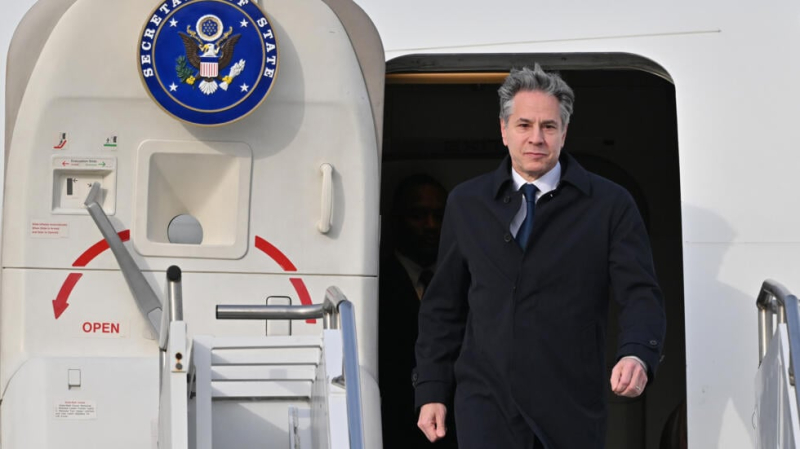- NCP Demands Impeachment, Arrest of President |
- PM Pledges to Modernise, Strengthen Border Force |
- Dhaka Tops Global Pollution List with Hazardous Air |
- Country Observes Martyred Army Day Today |
- 100 CSOs rally against Trump’s trade tactics, urge access to drugs |
N. Korea fires ballistic missiles as Blinken visits Seoul

North Korea fired multiple short-range ballistic missiles on Monday in what analysts said was a calculated move to grab attention as US Secretary of State Antony Blinken visits South Korea for talks.
Blinken is attending the third Summit for Democracy and met President Yoon Suk Yeol in Seoul early Monday. He will also meet his South Korean counterpart on the sidelines of the event, for discussions now likely to be dominated by the allies' efforts to counter threats from the nuclear-armed North.
Washington and Seoul wrapped up one of their major annual joint military training exercises last week, prompting angry retorts and live-fire drills from nuclear-armed Pyongyang, which condemns all such exercises as rehersals for invasion, reports BSS.
Seoul's military said it had "detected around 0744 (2244 GMT) the launch of what appeared to be multiple short-range ballistic missiles," adding they flew around 300 kilometers (186 miles) before coming down into the East Sea, also known as the Sea of Japan.
"We are closely sharing relevant information with the US and Japan and are maintaining utmost readiness," the Joint Chiefs of Staff added.Japanese media reported three short-range ballistic missiles were launched, with Prime Minister Fumio Kishida condemning the North's "repeated and highly frequent" weapons tests.
This "series of actions threaten the peace and security of Japan, the region and the international community. We do not tolerate it," Kishida added.
The launches come just days after Seoul and Washington's annual Freedom Shield drills, which this year involved double the number of troops, ended Thursday.
Pyongyang this month warned that Seoul and Washington would pay a "dear price" over the drills, and later announced that North Korean leader Kim Jong Un had guided an artillery unit it says was capable of striking the South Korean capital.
"It's a highly calculated move timing-wise by Pyongyang to fire multiple missiles to show they are capable of doing such an act even when the top US diplomat is in town," Professor Choi Gi-il of military studies at Sangii University told AFP.
North Korea typically stages missile launches "as a tit-for-tat" after US-South Korea joint drills, Han Kwon-hee of Korea Association of Defence Industry Studies told AFP.
Blinken's presence only adds to their motivation, he said, as it "means more attention from Washington and adds pressure on host Seoul."
- Boosting deterrence -
Monday's ballistic missile test is the North's second this year, after Pyongyang launched one tipped with a manoeuvrable hypersonic warhead on January 14.
Blinken landed in South Korea on Sunday afternoon ahead of the democracy summit, which runs from March 18 to 20 and will bring together government officials, NGOs and civil society members.
Seoul is one of Washington's key regional allies, and the United States has stationed about 27,000 American soldiers in the South to help protect it against the nuclear-armed North.
Conservative President Yeol has boosted ties with Washington and sought to bury the historical hatchet with former colonial power Japan to better guard against Pyongyang's threats.
So far this year, Pyongyang has declared South Korea its "principal enemy", jettisoned agencies dedicated to reunification and outreach, and threatened war over "even 0.001 mm" of territorial infringement.
Blinken will meet South Korean Foreign Minister Cho Tae-yul, the ministry said, for discussions on boosting the alliance, as Washington and Seoul look to improve their so-called "extended deterrence" against North Korea.
The democracy summit has attracted some criticism due to its selective invitation list, which excludes countries that consider themselves democratic, such as Thailand and Turkey.
After Seoul, Blinken heads to the Philippines, a trip that will reaffirm "our unwavering commitment to the Philippine ally", according to State Department spokesperson Matthew Miller.
The United States is redoubling efforts to improve longstanding ties with regional allies, such as Manila, in an effort to counterbalance China.

